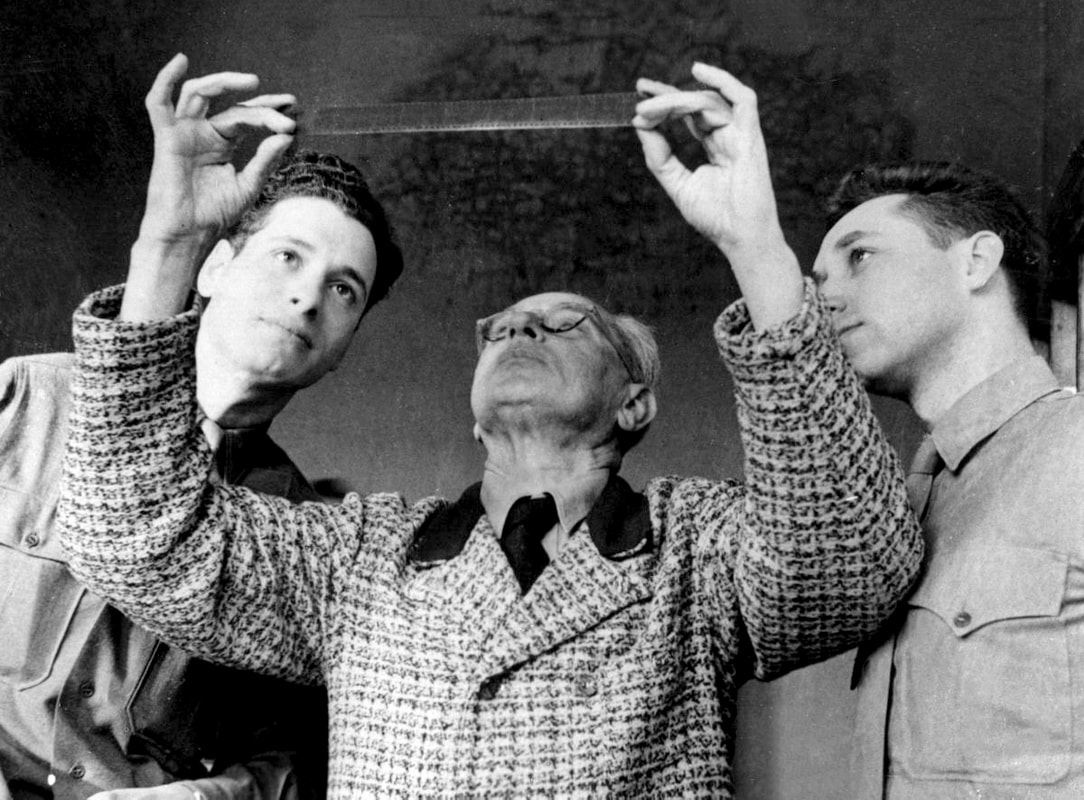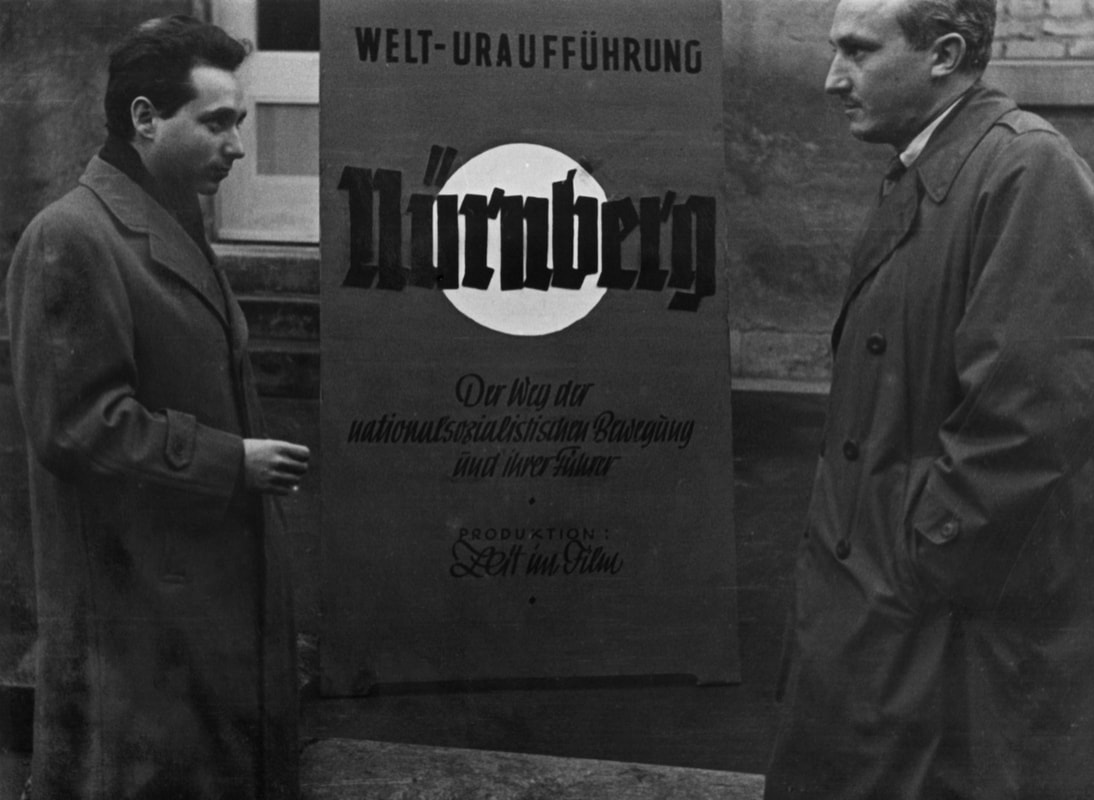|
Review by Sean Boelman
History buffs are constantly on the lookout for new accounts of WWII, and Jean-Cristophe Klotz’s documentary Filmmakers for the Prosecution offers an interesting perspective of the war. Although less-than-stellar execution prevents the film from being as riveting as it should be, the story is interesting enough to speak for itself.
The documentary tells the story of two researchers who, under the instruction of filmmaker John Ford, must gather visual evidence of the Nazi war crimes to be used in the Nuremberg Trials. This is an amazing true story that would make for a thrilling biopic, but for now, we get to see it in behind-the-scenes documentary form. Clocking in at under an hour in total runtime, it’s nice to see a documentary that knows how much of a story there is to tell and doesn’t try to milk it out with repetition. Of course, the brief nature means that the movie’s life is predominantly as an educational title or as a bonus feature on a home video release of the restoration of Nuremberg: Its Lesson For Today, but it’s less damning had they tried to create a longer film out of material that simply isn’t there. However, the movie is almost undermined by narration and voiceover work that is quite monotonous. This is not the type of documentary that needs to use an A-list celebrity as its narrator to be effective, but the narrator (as well as those reading the written archive materials) are so uninspired that they could almost lull you to sleep.
Still, there are some really fascinating elements to this story, and it’s exciting to see them unfold. For example, one portion of the documentary explores how the filmmakers were effectively racing against the clock to discover this footage before it was destroyed by the Nazis. Although the film fails to ask some of the obvious questions about censorship and preservation, it’s fascinating to think about nonetheless.
The main reason to recommend this movie is its extensive and impressive use of archive footage. Admittedly, much of the footage used in the documentary is the likes of which has been studied in history classes for decades, such as the propaganda films of Leni Riefenstahl. However, the portions that really shine are those unearthed by the Schulbergs during the completion of the “lost film.” Otherwise, the movie very much has a public broadcasting or educational video feel to its entire production. The editing, while competent, is very basic, as is the framing of the modern-day interviews. As a result, the value of this film is not so much for entertainment, but for educational purposes. Filmmakers for the Prosecution will likely have a long life as a movie used by high school history teachers to explore the documentation that existed of WWII. While hardcore history buffs and cinephiles will certainly find something of interest here, general audiences will likely feel rather ambivalent towards it. Filmmakers for the Prosecution is now playing in theaters. Rating: 3/5
0 Comments
Leave a Reply. |
Archives
July 2024
Authors
All
|
|
|
disappointment media
Dedicated to unique and diverse perspectives on cinema! |


